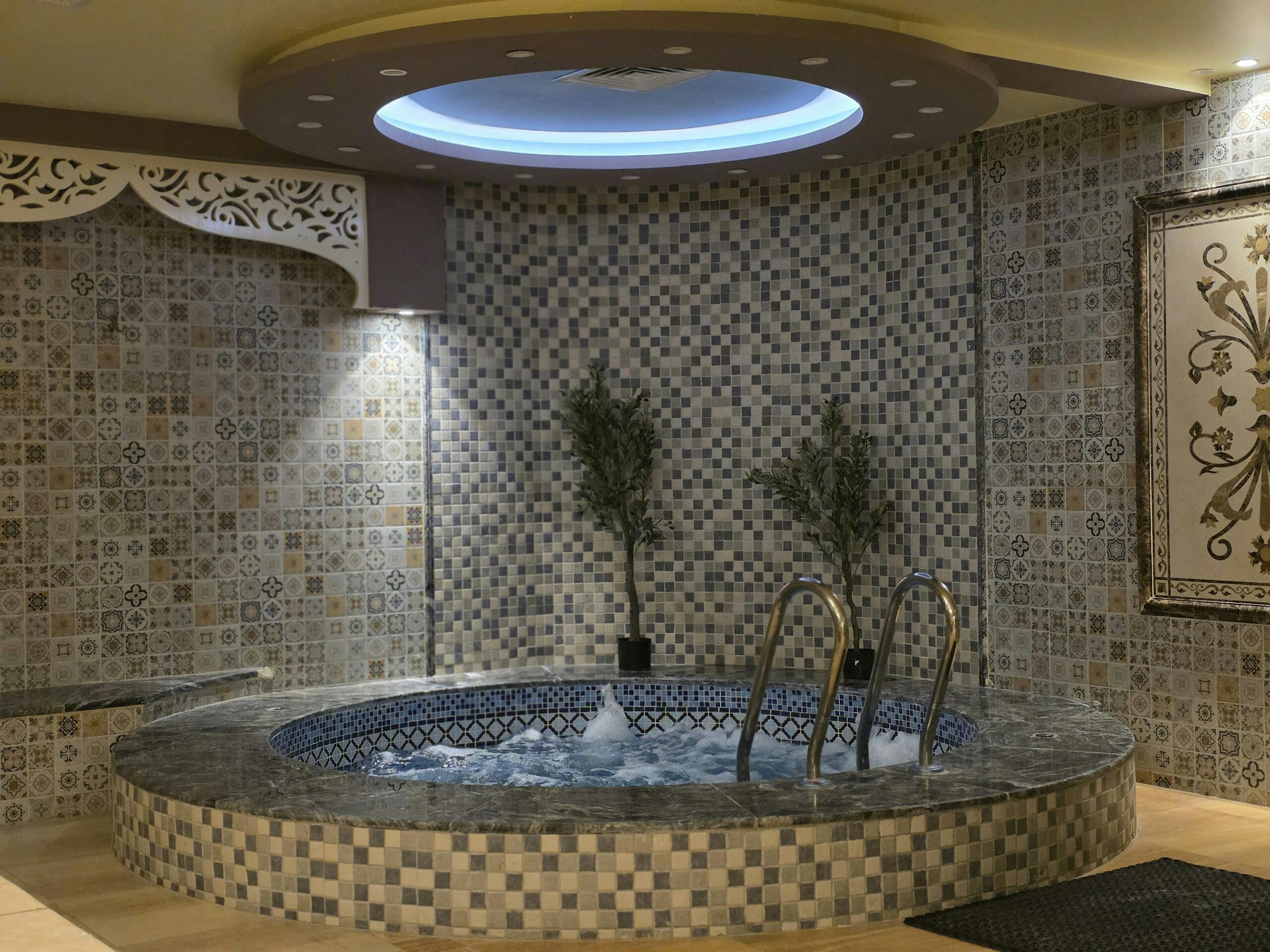Introduction to Indoor Pool Health Benefits

Swimming is a widely recognized sport and it is considered to be one of the greatest exercises that involve the entire body, yet, when this sport is transferred to the interior, the health benefits get readily available and uninterrupted. Indoor pools provide an advantageous environment where fitness, relaxation, and rehabilitation could enhance irrespective of weather and season. To people who want to stay physically and mentally fit, having the knowledge of the health advantage of indoor pools can be life changing.
Why Indoor Pools Support Health and Wellness
The indoor pools give them a setting that removes most of the obstacles to physical activity. Cold winters, extreme heat or closed seasons do not limit them as in the case of outdoor pools. This year-round access creates some form of consistency, which is the prime factor in creating sustainable wellness practices. The indoor swimming is also a good alternative whereby the temperature can be set to an appropriate level in order to allow exercises, recovery and relaxation in the water. The indoor pool provides the ideal combination of fitness and relaxation whether one is intending to work on their cardiovascular endurance, managing weight or even relaxing.
Common Misconceptions About Indoor Pool Benefits
There is a widespread misunderstanding that indoor pools are only used by competitive swimmers or even luxurious lives. As a matter of fact, they can be used by ordinary families, the elderly but in therapy, as well as by individuals receiving therapy. The other myth is that indoor pools are more hazardous in terms of health due to chlorine or air flow. Though, it is important, modern technology of ventilation and pools reduces such issues. Due to the appropriate care, an indoor pool can be not only safe, but also, it is sometimes healthier than outdoor options since the swimmers can be protected against bad UV light, and outdoor contaminants.
Basics of Indoor Pool Health Benefits
Physical Health Advantages of Indoor Swimming
Indoor swimming activities involve almost all the muscles that are not accompanied by joint strain as in the case of high-impact exercises. Water helps lower the load on the knees, hip and spine and is a perfect exercise when the person is having arthritis or injury or difficulty in movement. The regular swimming in an indoor pool will positively impact cardiovascular health, build muscular stamina, and elasticity. Although it is done in the form of swimming low intensity or even walking in water, cals burn easily and it is a good method of controlling weight and sustaining lasting fitness.

Mental and Emotional Wellness Benefits
It is an overwhelming impact of water on the mind as it is very calming. Indoor swimming pools are a peaceful place in which people can forget about the daily stresses and relax emotionally. It has been bonded to swimming that alleviates anxiety, enhances sleep patterns and positively affects mood. The frequent movement of the strokes, as well as the calming influence of warm water, may even resemble meditation, which makes swimmers feel clarity and relaxation.
How Indoor Pools Differ from Outdoor Pools in Health Impact
Whereas both outside and inside pools are very beneficial to health, the indoor pools provide a more constant and regulated environment which benefits to the maximum. Outdoor pools subject the swimmers to seasonal allergens, stormy weather, and unexpected heat and UV radiations. Indeed, the opposite of that, indoor swimming pools present 24/7 training, therapy and recreational activities without the inconvenience of sunburn or weather problems. Such a cramped space can also be expected to enhance compliance with physical exercises over the long-run and indoor pools would be more practical in the prevention of health promotion that is environmentally-friendly.
Scientific Backing and Research on Indoor Pool Health Benefits
Studies Linking Indoor Swimming to Fitness and Longevity
The studies always indicate that swimming is among the most effective physical exercises to live longer. It has been revealed that the expectancy of swimmers living a longer life with less cardiovascular complication is high as opposed to that of non-swimmers. By providing regular access, indoor pools assist people in keeping regular habits that enhance these advantages. Swimming is aerobic which strengthens the heart and lungs, as well as resistance against the water has an enduring effect of increasing muscle strength.
Indoor Pools and Respiratory Health
The quality of air near indoors swimming pools has been a cause of some concern, however, due to the current ventilation mechanisms, indoor swimming actually helps the respiratory system. Controlled environments minimize the exposure to various outdoor pollutants, pollen and smog that may cause asthma or allergies. To the majority, particularly children and elderly, indoor pools offer a more clean and safer area to stretch their bronchi and enhance their breathing.
The Role of Indoor Pools in Stress Reduction
The psychological research points to the relaxing impact of water exercise. The effect of swimming on the body is that it enhances the production of endorphins, which are natural mood elevators in the body and the feel of being in water also reduces cortisol, the stress hormone. The added effect of indoor pools is an additional level of relaxation by excluding the factors that cause distraction like weather, insects or noise that exist in outdoor pools. This renders them a perfect location of a mental fitness program.
Real-World Applications of Indoor Pool Health Benefits
Indoor Pools for Rehabilitation and Physical Therapy
Physiotherapy clinics and rehabilitation centers have indoor pools in large numbers. Hydrotherapy assists the patients who have undergone surgeries, joint replacement or sports related injuries to heal through low impact resistance. The fact that water is buoyant will also give an advantage to the strain as people will be placed in a position where they will be able to engage in things otherwise unattainable on the ground. Particularly, the painful muscles and joints will be relaxed with warm-water pools, and this will make the therapy more productive and comfortable.
Fitness Routines and Exercises in Indoor Pools

In addition to circling the pools, the indoor pools lead to the multitude of exercises opportunities. There are the emerging trends of water aerobics, resistance training using aquatic equipment, and even yoga in deep pools. Such routines are also good sources of strength training, cardio and flexibility training without the body strain that comes with conventional workouts. Indoor pools provide the benefits of cross training which avoids joint damage and enhance endurance among athletes.
Family and Lifestyle Benefits of Indoor Swimming
It is not an indoor pool that only serves people but a family-friendly recreation that doubles up as a form of exercise. Children are taught to swim in a safe setting, whereas adults have an option of relaxing or exercising. Families that have access to indoor pools tend to record better quality bonding time and healthy lifestyle practices. Indoor swimming pools encourage a long-term health benefit by enhancing swimming as a way of life.
Potential Risks and How to Maximize Indoor Pool Health Benefits
Addressing Chlorine and Air Quality Concerns
Chlorine exposure is one of the key issues of indoor pools. Nevertheless, it is through the modernized systems like saltwater pools, UV sanitation and advanced filtration that the reliance on chemical is greatly minimized. With adequate ventilation, there is circulation of fresh air and eyes and lungs do not get irritated. These risks are low when compared to the numerous health advantages that accrue by keeping the water clean and water tested on a regular basis.
Best Practices for Safe and Healthy Indoor Swimming
In order to maximize the positive effects which are already in place, it is recommended that swimmers adhere to several simple best practices: the swimmers should take a shower before going to the pool, they should keep their hygiene and dress up in the proper attire used to swim. PH and Chlorine levels should be monitored, the air flow and comfortable water temperature should be ensured. With such precautions even indoor swimming pools will be rated as one of the safest places to exercise and have fun.
Conclusion
The indoor pools do not merely represent the luxury features, but they are the wellness centers, which improve physical condition, emotional stability, and healing. The health benefits are far-reaching and far-reaching, and they may be as close as cardiovascular endurance and stress reduction, up to family bonding. Through new safety precautions to overcome possible risks, indoor pools are a good solution to the long-lasting well-being and joy.
FAQs About Indoor Pool Health Benefits
Indoor pool swimming: Does it make you happier?
Yes. Indoor swimming alleviates stress and enhances endorphins and helps to relax. The anxiety, sleeping difficulties, and the general emotional balance can be benefited by the calm and controlled environment.
Which are the fitness advantages of indoor pool exercises?
Natural pool exercises are effective in cardiovascular conditions, muscle-strengthening, and flexibility, and weight control. They are also low-impact and are suitable in the case of seniors, joint problems, or injury victims.
Are indoor pools beneficial in the rehabilitation?
Absolutely. Various physiotherapists resort to indoor pools in hydrotherapy as water causes strain to the joints and permits easy resistance exercise. This enhances the healing of operative procedures, athletic injuries or chronic pain syndromes.
Indoor pools have risks?
The primary issues are those related to chlorine exposure and air quality, which are reduced by modern ventilation systems and use of alternative ways of sanitation (such as saltwater or UV systems). When well maintained the advantages greatly outnumber the disadvantages.
What is the best frequency of swimming in an indoor pool?
Fitness, mental and flexibility, even with 23 sessions a week, can be much better. Regular swimming sessions, even during short sessions, are more rewarding than time-based swimming.
Can indoor pools be used by people of all ages?
Yes. Indoor pools are all family friendly and accommodating to the senior population and the children. Children are able to learn how to swim, adults can exercise or relax, and the elderly are in a position to engage in low-impact exercise that not only preserves their joints but also keeps them healthy.

